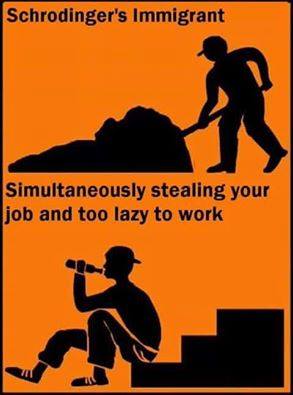Reading Reflection, Age of Migration Chapter 10
- On p 221 it says, “The third group consists of those countries which tried to cling to ‘rigid guestworker’ models, above all Germany, Austria, and Switzerland. Such countries tried to prevent family reunion, were reluctant to grant secure residence status, and had highly restrictive naturalization rules.”
This surprised me (about German) but I don’t know why. That’s not the impression I have of them, although I noticed that this book was written in 1995. I didn’t spend a LOT of time looking but realized this goes back to the end of World War II and the ensuing labor shortage. “Gastarbeiter” was the term used in West Germany while East Germany used the term “Vertragsarbeiter”. (I’ve tried to find if there was a significant difference between these two words but it seems to just be “guest worker” versus “contract worker”.) - “In the 1990s, illegal migration and the costs of welfare for immigrants became major political issues.” (p 223)
This point just struck me because here we are now in 2017 and it seems like this has just “become” a major political issue all over again. In reality, this has never NOT been an issue, it seems. - “The increase in asylum-seeker entry in the late 1980s led to anti-immigrant campaigns by extreme-right groups. In 1988, a referendum in the small town of Sjöbo decided to keep refugees out. This was followed by an increase in racist violence, including arson and bomb attacks on refugee centres.” (p 240)
This quote is from the boxed section titled “Minorities in Sweden” and again, each of these quotes and throughout the entire reading I’m reminded that what is happening now, in present time, isn’t really unique. In a course on migration that I took last quarter, we spoke about the various stereotypes applied to immigrant groups – they tend to be categorized as either stealing all of our jobs, lazy and living off the government, and/or dangerous and violent (the “warrior” immigrant). It reminded me of this “meme” I had seen a few months ago:
Funny, but not funny. We spent a lot of time discussing that statistics and facts simply don’t work, in trying to convince people that immigrants are none of these things – that, in fact, statistics show they contribute to the economy and enrich the areas they live in.
